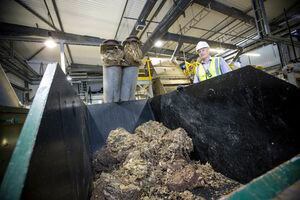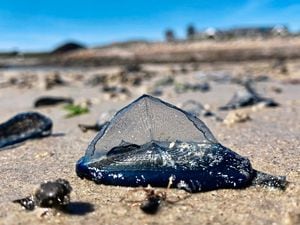Flushed rubbish is causing a problem
ABOUT three tons of rubbish is pulled out of Guernsey’s wastewater system every week.

And with the introduction of the new waste strategy, Guernsey Water is encouraging islanders to remember not to flush their rubbish.
Guernsey Water operations manager Jon Holt said the only thing going down the toilet should be the three Ps – paper, pee and poo.
He would not say whether the company was worried about an increase in blockages following the introduction of the new waste strategy.
Under the strategy, black bag waste will only be collected every two weeks, although food waste will go out weekly.
‘We always want to remind customers about the three Ps,’ he said.
‘The things that cause us problems are wipes and also fats and greases.
‘There are a lot of items that are marketed as flushable, but in our sewer system they cause a lot of maintenance problems and can be quite costly to remove.’
At Belle Greve Wastewater Centre there is a screen that removes any items larger than 6mm.
These items are then put in a skip, which is emptied two or three times a week. Mr Holt said on average about three tons of rubbish is removed each week, which then has to go to Mont Cuet.
But not all the rubbish makes it as far as the east coast centre.
‘The biggest problem for us in the sewer network is that wet wipes can block our pumps or our pumping stations,’ Mr Holt said.
‘We have roughly 120 pump lifts a week due to blockages. The smaller situations can be dealt with quite quickly. But there was one on Southside, which is a 17 metre deep wet well – the pump is 17 metres below the ground, so we had to get a crane to clear it. That took a day of work.’
There is a programme of pro-active maintenance of the sewers that takes place. But blockages means that those staff instead have to put the programme on hold and instead react to problems.
‘Ultimately the less we have to deal with unflushables, the more efficient we can be,’ Mr Holt said.





